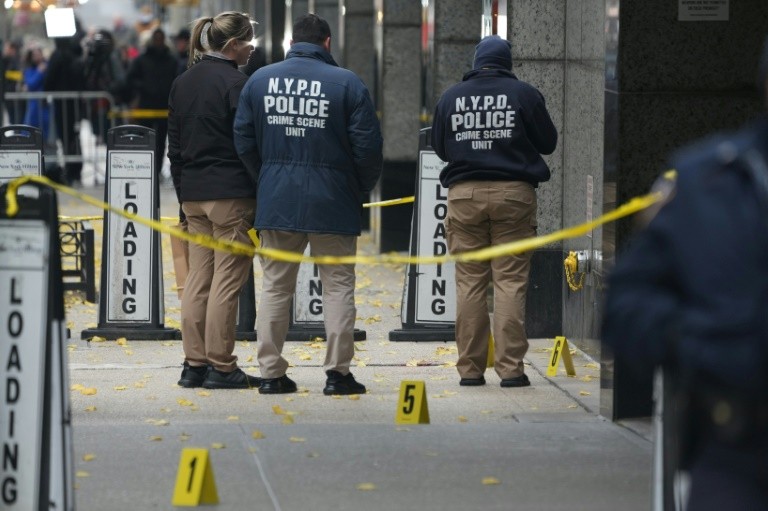
Gun rights activist Rob Pincus was worried when he heard a 3D-printed "ghost gun" was found on the alleged shooter in last week's notorious murder of a US health executive in New York.
Not because it showed the danger of the untraceable weapons -- but because the killing of UnitedHealthcare CEO Brian Thompson would mean "another wave of attacks" against private gun makers.
A police report states that 26-year-old Luigi Mangione, who led authorities on a six-day manhunt only to be arrested in a McDonald's restaurant in Pennsylvania, was found with a "black 3D-printed pistol and a black silencer" in his backpack.
The news sparked renewed fears over ghost guns, which President Joe Biden's administration has tried to crack down on as the homemade weapons are increasingly used in crimes.
Ghost guns are weapons put together as a kit or from separate pieces, sometimes made by 3D printers, and have no serial numbers so cannot be traced.
Anti-gun violence group Giffords Law Center slammed them as a "criminal's dream come true," while another group, Everytown, said the New York killing showed how they have "exacerbated our nation's gun violence epidemic."
But for Pincus, who runs an annual homemade gun-making contest, producing 3D-printed guns is a "nerdy" hobby.
The process typically involves inputting gun designs shared online into a 3D printer, which then sculpts a physical frame that can be built into a firearm using other commercially available parts.
"It trends towards the 'Lords of the Rings book club' look, rather than the 'wannabe cop' look you might get at other gun events," he told AFP.
However, enthusiastic social media reactions to the New York killing hint at a darker underbelly to homemade gun making, as some people began to recognize who had designed the alleged shooter's gun.
"Congratulations @chairmanwon for designing the frame of the 1st high profile assassination with a 3D Printed gun," one gun maker wrote on X, referring to the pseudonym of the supposed creator.
Some designers have gone offline since the killing -- possibly fearing repercussions from authorities, according to Cody Wilson, the founder of a website that distributes gun designs that can be used on 3D printers.
"There are lots of legal implications... Law enforcement are now empowered to penetrate the groups of designers," Wilson told AFP.
Under US law, gun rights are closely protected by the Second Amendment and it is legal to build a firearm for personal use.
Many people doing this had relied on DIY gun kits bought on the internet until the Biden administration introduced new regulations in 2022, as police recoveries of ghost guns jumped from 4,000 in 2018 to nearly 20,000 in 2021.
The rule, which is being challenged by gun rights groups in the Supreme Court, broadened the definition of a firearm to include the weapon frame -- even if sold separately -- meaning sellers of frames would have to provide serial numbers and carry out background checks on buyers.
Tom Chittum, a former associate deputy director of the US Bureau of Alcohol, Tobacco, Firearms and Explosives (ATF), said that technology developments are likely to increase 3D-printed guns, but he still downplayed the danger they posed despite the latest death.
"It's exceedingly rare to see 3D-printed weapons used in violent crimes," Chittum, who now works at a security firm, told AFP.
"There's no reason to think that 3D guns have somehow made the world more dangerous."








